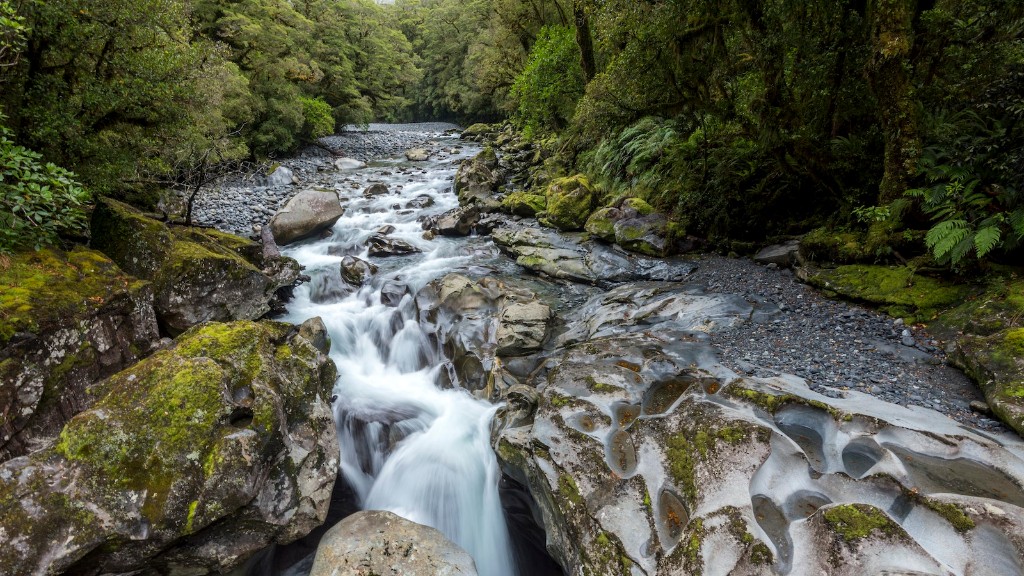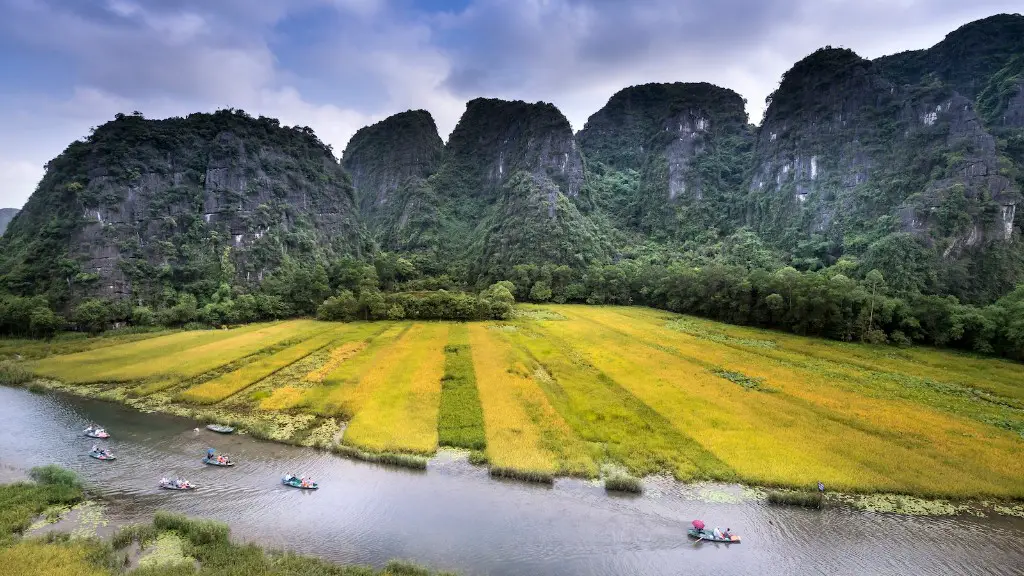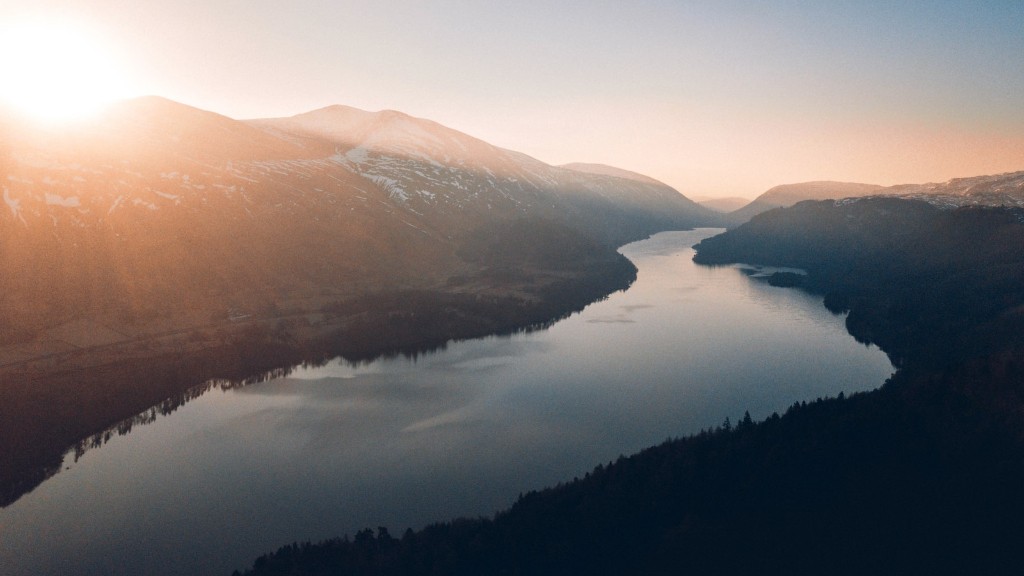Geography
The Yangtze River is the longest river in China and Asia, and the third longest in the world. It originates from the glaciers on the Tibetan Plateau and travels 6,300 kilometers across China before eventually flowing into the East China Sea at Shanghai. Along its course are major Chinese cities such as Wuhan, Nanjing, and Shanghai. The river is a major transportation route, with its extensive network of canals, locks and reservoirs which add to its economic significance.
Economic Impact
The Yangtze River is a key driver of economic growth and development in China. According to the United Nations Development Program, the river accounts for nearly 40 percent of the nation’s total GDP. It is responsible for bringing water to the country’s vast agricultural and industrial centers. The river also provides essential water for shipping and trade activities throughout China.
Historical Significance
The Yangtze River is deeply intertwined with Chinese history, with references to it appearing in ancient texts and documents. As early as the 6th century BC, Chinese emperors saw the value of the river, recognizing its strategic importance and its potential for economic gain. Further dynasties continued to expand the economic importance of the Yangtze River, which became the center of the Chinese economy in the 19th century.
Environmental Concerns
Despite its economic importance, the Yangtze River has also suffered from environmental degradation over the years. In recent years, there has been an increase in pollution in the river due to agricultural and industrial runoff and over-extraction of water for human activities. As a result, the river is now threatened by water shortages, water pollution, and declining fish stocks.
Conservation efforts
Fortunately, government and local organizations have taken steps to prevent further degradation of the Yangtze River. They are working to restore the river’s aquatic ecosystems and to protect its biodiversity. In addition, local communities are being encouraged to adopt sustainable fishing and agricultural practices. These efforts have been met with success, as the Yangtze River’s water quality has gradually been improving.
Future of the Yangtze
Despite efforts to reduce its environmental impact, the Yangtze River will continue to face challenges in the future. Its economic significance and environmental importance make it a crucial resource for the region and the world. The Chinese government is committed to protecting the Yangtze, but it will be up to local communities and stakeholders to ensure that the river is responsibly managed and protected for future generations.
Tourism
The Yangtze River is an increasingly popular tourism destination for both domestic and international visitors. From its majestic waterfalls to its lush rainforests, the river’s natural beauty offers visitors a unique and unforgettable experience. Tourists can explore the river by boat and visit historical sites along its winding banks. Popular tourist destinations in the Yangtze Valley include the Three Gorges Dam, the Three Gorges scenic area, and the picturesque city of Chongqing.
Pollution Prevention
Pollution prevention remains a key concern in the Yangtze River Valley. Local communities are being encouraged to adopt sustainable practices to reduce water pollution and keep the river healthy. Measures such as the Three Gorges Dam, the Yangtze River Basin Management Commission, and the Yangtze River Protection Law have been implemented in order to protect the river’s ecology and sustain its long-term viability.
Climate Dynamic
The Yangtze River Valley is particularly vulnerable to climate change, which threatens the river’s water supply and could potentially result in droughts or floods. The Chinese government has been proactive in addressing the effects of climate change, with plans to protect and restore the ecology of the Yangtze. These include efforts to reduce emissions and increase investment in renewable energy.
Environmental Conservation
Environmental conservation remains a priority for the Yangtze River Valley. The Chinese government is investing in conservation efforts such as habitat restoration and protecting endangered species. Local communities and governments are also taking part in environmental education initiatives to raise awareness of the importance of the river and its conservation.


